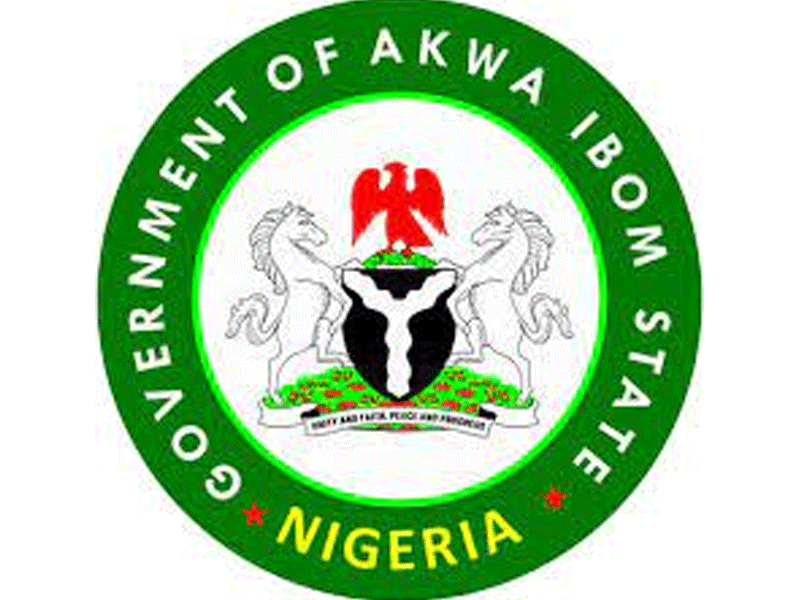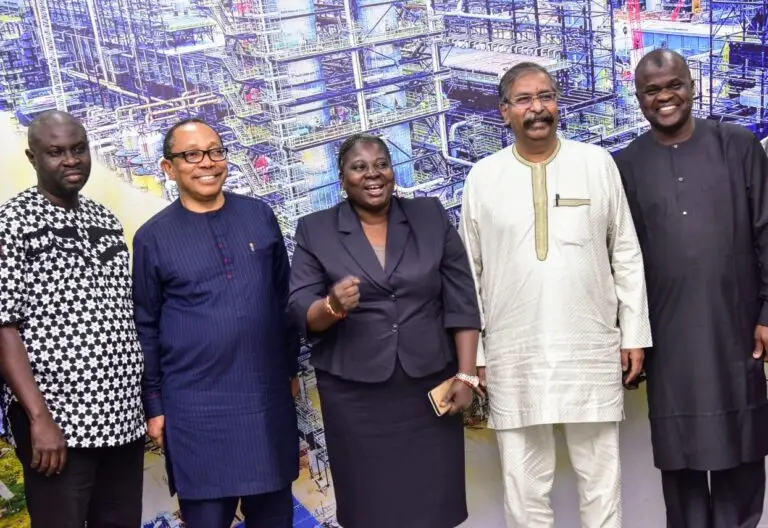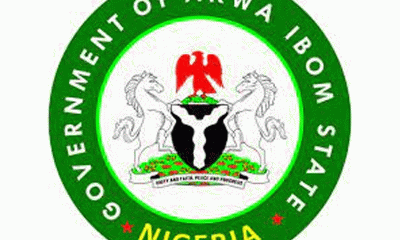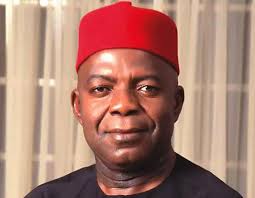NEWS
Fuel Crisis: 1000 CSOs Fault Tinubu’s Economic Team, Want Immediate Reconstitution

By David Torough, Abuja
About 1000 Civil Society Organizations (CSOs), under the auspices of Coalition Of Civil Society Organisations (CCSOs), on Saturday Faults President Bola Tinubu’s Economic Team and called for immediate reconstitution.Expressing deep concerns over the state of the economy and escalating fuel prices compounding the hardship of Nigerians despite the recent protest, the groups said Tinubu must act now to avert disintegration.
The groups said the current situation across the country has cast doubt on the competence of the Tinubu economic team and called for urgent review. The CCSOs in a statement by its National Coordinator, Mallam Ibrahim Mohammed, pointed out that the plight of Nigerians is sinking low and their patience is wearing off following the deteriorating economy.The statement reads in part, “The Coalition of Civil Society Organisations (CSOs) is deeply concerned about the deteriorating state of the Nigerian economy, which is becoming increasingly unbearable for millions of citizens.“It is evident that the recent hike in fuel prices and the unstable exchange rate are the direct results of economic mismanagement by those responsible for overseeing our nation’s financial policies. The ripple effects of these failures are being felt in every household across the country, worsening poverty and crippling economic activity.“The floating of the Naira, which was initially sold to Nigerians as a means of stabilizing our currency, has done little to prevent the continued devaluation of the Naira. In fact, the exchange rate disparity has widened significantly, with the Naira losing value daily, impacting the cost of living, basic commodities, and inflation.“While this policy was expected to ease foreign exchange pressure, it has instead deepened economic challenges due to poor implementation and lack of strategic foresight.”The coalition also expressed concern over what it described as a death trap of indebtedness of the Nigerian National Petroleum Company Limited (NNPCL), which also they claimed had slowed down importation of Premium Motor Spirit, PMS, hence the current shortage of PMS across the country. “Of equal concern is the precarious position of the Nigerian National Petroleum Company Limited (NNPCL), which finds itself in a debt trap, with global suppliers of petroleum products losing confidence in Nigeria’s ability to honour its obligations.“Reports have shown that NNPCL has accrued debts totalling over $6 billion, causing petrol supply shortages. International suppliers are now reluctant to continue providing fuel on credit, exacerbating supply chain issues and pushing up the price of petrol at the pump”, they claimed.The CSOs also asserted that, “We hold the managers of the Nigerian economy responsible for these disturbing developments. Their inability to provide sound policies and long-term solutions has left the nation in this predicament.“It is clear that there is no cohesive strategy to address the rising debt, the growing imbalance in the foreign exchange market, or the country’s heavy reliance on importation for petrol supply. The recent hike in fuel prices reflects the collapse of responsible economic management and accountability.“Nigerians are left to bear the brunt of these failures. Businesses are shutting down, transportation costs have skyrocketed, and citizens are spending an increasingly larger percentage of their income on basic necessities. This state of affairs is unacceptable.”The group therefore placed some demands; Immediate intervention from the government: There needs to be a comprehensive and transparent plan to stabilize the Naira, restore confidence in the petroleum supply chain, and negotiate a restructuring of NNPC’s debts to ensure continuous fuel supply.“Accountability for economic mismanagement: Those responsible for the reckless management of our foreign exchange policies and NNPC’s debts must be held accountable. The government must also disclose its plan to mitigate the rising fuel costs and economic burden on Nigerians.“A return to sound financial policy: The floating of the Naira has proven ineffective under current conditions. We call for a re-evaluation of monetary and fiscal policies to stabilize the economy, reduce inflation, and attract foreign investment.“In conclusion, the Coalition of Civil Society Organisations reiterates that without immediate corrective measures, the economic situation will continue to deteriorate, leading to further hardship for the average Nigerian. The government must act decisively and responsibly to reverse this downward spiral”, they added.NEWS
NBA Slams Ibom Air over Passenger’s Undignified Treatment

The Nigerian Bar Association (NBA) has condemned the treatment of Ms Comfort Emmanson aboard Ibom Air, describing it as reckless, unlawful and a grave violation of her right to dignity.This is contained in a statement signed by the NBA President, Mr Afam Osigwe (SAN) and the General Secretary, Dr Mobolaji Ojibara.
Report says that on Aug. 10, an incident occurred aboard an Ibom Air flight involving Emmanson. NBA described the manner in which Emmanson was removed from the aircraft as dehumanising.NBA noted that video footage showed an Ibom Air hostess blocking Emmanson’s exit from the plane.The association noted that the conduct could constitute false imprisonment and provocation, potentially escalating the situation.NBA expressed outrage over allegations that Emmanson was publicly stripped of her clothing, humiliated, filmed and had the footage circulated online.The association viewed the photographing, dissemination and online circulation of indecent images of her as both degrading and a serious invasion of privacy, constituting a criminal act.“Even if the incident had to be reported, the footage should have been blurred or edited in a way that did not expose her nudity to the public,” NBA said.The association stressed that those responsible for capturing and distributing the unedited footage must be identified and prosecuted.They warned that such acts erode public trust and undermine the rights of all citizens to be treated with dignity and respect.NBA considered the lifetime ban on Emmanson from flying Ibom Air or any other, as heavy-handed, legally and morally indefensible, and in breach of the principle of fair hearing.The association argued that only the relevant statutory regulator had the authority to suspend or restrict a passenger’s flying privileges, not private entities or airlines.The NBA demanded that Ibom Air lift the lifetime ban on Emmanson and issue a public apology.NBA urged the Minister for Aviation, the Nigerian Civil Aviation Authority, the Federal Airports Authority of Nigeria, and relevant security agencies to conduct a thorough investigation and sanction those responsible.The association pledged to provide Emmanson with pro bono legal support to protect her rights and seek redress for the violations she suffered. (NAN)NEWS
NLC Urges Crude Sales to Dangote in Naira

The Nigeria Labour Congress (NLC) Lagos State chapter, has urged the Federal Government to prioritise selling crude oil to the Dangote Refinery in Naira. Lagos NLC Chairperson, Funmi Sesi, made the appeal during a Tuesday tour of Dangote Petroleum Refinery and Fertiliser Ltd.
by Labour Writers Association of Nigeria (LAWAN) members and NLC officials. Sesi said compelling the refinery to import crude or buy locally in dollars undermined the promise of reduced fuel prices for Nigerians. “This country has crude oil in abundance. Why is Dangote still importing crude or paying in hard currency for locally produced crude?” she asked. “If the government truly wants to lower fuel prices and support local refining, it must sell crude oil to Dangote in Naira,” she added. According to her, sourcing crude locally in local currency would significantly reduce operational costs and lead to a sustainable drop in fuel prices. The union leader praised Dangote Ltd. for creating a transformative national asset that helps bridge Nigeria’s fuel supply gap, creates jobs, and boosts industrial capacity. She said the scale and strategic importance of Dangote Group’s investments were already delivering measurable benefits to Nigerians. “Today, we have seen the refinery, the fertiliser plant, and other investments in this axis. The size and impact are enormous and impressive,” she said. She described the projects as clear efforts to improve essential product availability, create jobs, and advance Nigeria’s industrialisation. Following the removal of petrol subsidies, Nigerians faced a sharp rise in Premium Motor Spirit (PMS) costs. She said Dangote’s refinery entry helped stabilise prices. Sesi noted that Dangote’s operations had significantly lowered PMS and other refined product prices, demonstrating private sector leadership in the industry. “With a 650,000-barrel daily capacity, this refinery can serve Nigeria and West Africa. We also saw large vessels exporting fertilisers to other countries,” she said. She praised Aliko Dangote for building a fully operational, world-class refinery that meets domestic and regional refined petroleum needs. Sesi also commended the production of Euro-5-compliant fuel with reduced sulphur content, aligning with global environmental standards and enhancing Nigeria’s market reputation. “This is the pride we want — a Nigerian company producing at global standards, changing the narrative, and boosting our global standing,” she said. She also lauded Dangote Fertiliser Company, which already exports to international markets, urging government support to improve food security and reduce imported agricultural inputs. Dangote Industries Vice President, Oil and Gas, Devakumar Edwin, said the refinery was addressing Nigeria’s dependence on imported refined products. He said it was setting a foundation for a sustainable, competitive refining industry that would benefit the national economy. Edwin revealed plans to deploy 4,000 Compressed Natural Gas (CNG)-powered trucks to distribute refined petroleum products nationwide. He said the CNG trucks would ensure domestic refining benefits and lower fuel prices are fully passed to Nigerian consumers. According to him, the CNG fleet would reduce logistics costs — a major contributor to pump prices. “The deployment of 4,000 CNG-powered trucks will help pass down domestic refining benefits and lower product prices to consumers,” he said. He clarified the aim was to improve distribution efficiency, not displace existing operators. Edwin added that CNG trucks are environmentally friendlier and cheaper to run, helping to make refined products more affordable nationwide. (NAN)Foreign News
Gaza: UNESCO Condemns ‘Unacceptable’ Killing of Journalists

The United Nations Educational, Social and Cultural Organisation (UNESCO), has strongly condemned the killing of six journalists in Palestine by an Israeli drone on Sunday.UNESCO’s Director-General, Audrey Azoulay, made this known in a statement on Tuesday.“I condemn the killing of journalists Anas Al-Sharif, Mohammed Qreiqeh, Ibrahim Zaher, Mohammed Noufal, Moamen Aliwa, and Mohammed Al-Khaldi and call for a thorough and transparent investigation, she said.
Five of the six worked for the influential Qatari-based media organisation, Al Jazeera. Anas Al-Sharif and Mohammed Qreiqeh were on-air correspondents, while Ibrahim Zaher, Mohammed Noufal and Moamen Aliwa worked as camera operators.Mohammed Al-Khaldi was a freelance photojournalist.They were reportedly killed by an Israeli attack on a tent used by media personnel at the entrance of Al-Shifa Hospital in Gaza City.The Israeli Defense Forces (IDF) alleged that the 28-year-old al-Sharif was a serving Hamas operative.Al Jazeera strongly denies this, describing the attack as an “assassination” and “yet another blatant and premeditated attack on press freedom.”The UN Human Rights Council-appointed independent expert on freedom of expression had on July 31 denounced an Israeli military spokesperson’s “repeated threats” and “unfounded accusations” against Al-Sharif.The council had described the allegation as “a blatant attempt to endanger his life and silence his reporting” in Gaza.Two Special Rapporteurs on Tuesday described the killings as “an attempt to silence reporting on the ongoing genocide and starvation campaign” in Gaza.“It is outrageous that the Israeli army dares to first launch a campaign to smear Anas Al-Sharif as Hamas in order to discredit his reporting and then kill him and his colleagues for speaking the truth to the world,” they said.The experts demanded an immediate investigation into the killings and full access to international media, which Israel currently bars from entering Gaza.Special rapporteurs and other independent experts are appointed by and report regularly to the Human Rights Council.They work in their individual capacity, are not UN staff and receive no payment for their work.UNESCO chief Azoulay stressed that targeting journalists reporting on conflicts is unacceptable and violates international law.She also reiterated her call to respect UN Security Council Resolution 2222, which was unanimously adopted in 2015 to protect journalists, media professionals, and associated personnel in conflict situations.UNESCO reports that since Oct. 2023, at least 62 journalists and media workers have been killed in the line of duty in Palestine.This excludes deaths in circumstances unrelated to their work, while OHCHR reports that at least 242 Palestinian journalists have been killed in the same time frame. (NAN)

















